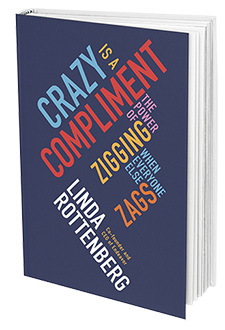Archive for October, 2014
“The measure of who we are is what we do with what we have.”
-Vince Lombardi
Quote of the week: Happiness never decreases by being shared
Published under Favorite Quotes Oct 17, 2014“Thousands of candles can be lighted from a single candle, and the life of the candle will not be shortened. Happiness never decreases by being shared. ”
- Buddha
“I can’t change the direction of the wind, but I can adjust my sails to always reach my destination. ”
-Jimmy Dean
Recommended Read: Crazy is a Compliment by Linda Rottenberg
Published under Entrepreneurship and Management Oct 07, 2014“We can’t help everyone, but everyone can help someone.”
- Ronald Reagan
Why do we have 24 hours of 60 minutes and 60 seconds in a way?
Published under Interesting Random Stuff, Introspection Oct 02, 2014I was wondering about this question – how did it come to pass that humans divided an earth’s day into segments of 24 hours, each with 60 minutes and 60 seconds?
My initial theory was (and to some degree still is) that some astronomers or wise people thousands of years ago first started with a unit of a “second” which perhaps was equivalent to an average heartbeat (60 heartbeats in a minute), or the time it took them to say a particular word (MilUno, MilDos, MilTres). From there they calculated mathematically how to divide the day into two blocks – day and night – and came up with a beautiful mathematical way to fit sixty seconds into one minute, and sixty minutes into an hour, and 24 hours (or 12*2 hours) into a full day.
I then did some research and learned some great theories (or may be facts?) about how Egyptians and others first came up with this beautiful system that we take for granted.
http://www.scientificamerican.com/article/experts-time-division-days-hours-minutes/
http://www.abc.net.au/science/articles/2011/11/15/3364432.htm
Part of the insights include that the “duodecimal” system is mathematically more beautiful to work with than the decimal one, because the number twelve divides much more cleanly and wholly into some of its components – can divide by one, two, three, four, and six – and end up with wholes, as opposed to 10, which only divides into 1, 2, and 5. Similarly the sexagesimal system has a beautiful history and characteristics.
http://en.wikipedia.org/wiki/History_of_mathematical_notation
http://en.wikipedia.org/wiki/Sexagesimal
It is also fascinating that the French at one point after their revolution tried to change the system and go for decimal time!
http://io9.com/5886129/the-short-strange-history-of-decimal-time















